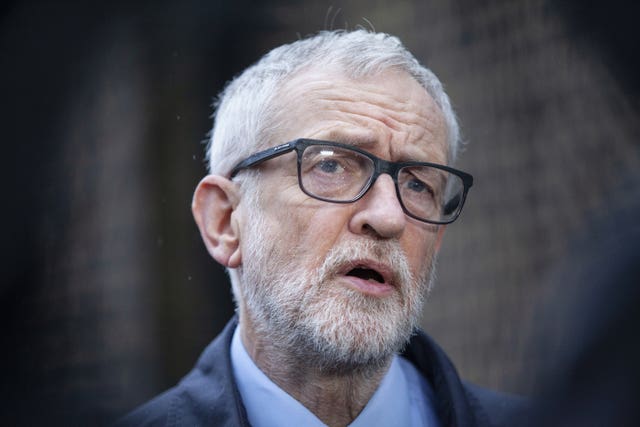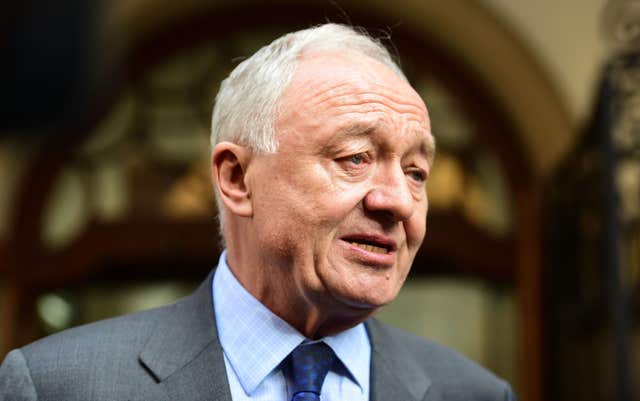Labour broke equality law in its handling of anti-Semitism, an investigation by the human rights watchdog has concluded.
A damning report by the Equality and Human Rights Commission found the party was responsible for unlawful acts of harassment and discrimination.
The investigation found evidence of “political interference” by then leader Jeremy Corbyn’s office in the complaints process, a move likely to add to the party’s bitter civil war over the handling of anti-Semitism during his time in charge.
The EHRC’s interim chairwoman Caroline Waters said there had been “inexcusable” failures which “appeared to be a result of a lack of willingness to tackle anti-Semitism rather than an inability to do so”.
Our investigation into antisemitism in the Labour Party has found unlawful acts of discrimination and harassment.
Read the full report: https://t.co/qfTOEGfYGx pic.twitter.com/JvTxz03gOZ
— EHRC (@EHRC) October 29, 2020
Mr Corbyn said he did not accept all the EHRC’s findings and insisted he had improved the process for handling anti-Semitism complaints.
The former leader also claimed the scale of the problem had been “dramatically overstated for political reasons by our opponents inside and outside the party, as well as by much of the media”.
The EHRC identified serious failings in the Labour Party leadership in addressing anti-Semitism and an inadequate process for handling anti-Semitism complaints.
The party is responsible for three breaches of the Equality Act (2010) relating to: political interference in complaints, failure to provide adequate training to those handling anti-Semitism cases and harassment.
Ms Waters said: “The Labour Party made a commitment to zero tolerance for anti-Semitism.
“Our investigation has highlighted multiple areas where its approach and leadership to tackling anti-Semitism was insufficient.
“This is inexcusable and appeared to be a result of a lack of willingness to tackle anti-Semitism rather than an inability to do so.”
The party has been served with an unlawful act notice and has been given until December 10 to draft an action plan to implement the report’s recommendations, which is legally enforceable by the courts if not fulfilled.

The EHRC found evidence of political interference in the complaints process, with 23 instances of inappropriate involvement by the Leader of the Opposition’s Office (LOTO) and others in the 70 files the watchdog looked at.
They included LOTO staff influencing decisions, including on suspensions or whether to investigate claims.
The EHRC found the situation to be indirectly discriminatory and unlawful as it put the person making the complaint at a disadvantage.
The watchdog found that the lack of training for people handling anti-Semitism complaints indirectly discriminated against Jewish members until August 2020, by which time Sir Keir Starmer was leader of the party.
Labour has committed to proper training, with the EHRC recommending it should be mandatory and fully implemented within six months.

The watchdog highlighted the actions of former London mayor Ken Livingstone and Pam Bromley, who was a councillor in Rossendale during the anti-Semitism row.
The EHRC said Labour was responsible for their anti-Semitic conduct, resulting in a finding of unlawful harassment, because they were acting as agents of the party.
But the report said this was only the tip of the iceberg and a further 18 “borderline” cases were found, involving councillors, local election candidates and constituency party office holders where there was not enough evidence to conclude Labour was legally responsible for their conduct.
Recommendations made by the watchdog include commissioning an independent process to handle anti-Semitism complaints and acknowledging the effect political interference has had and implementing clear rules to stop it happening again.
Ms Waters said: “It is encouraging to see the party’s new leadership has committed to implementing our recommendations in full.
“If the party truly wants to rebuild trust with its members and the Jewish community, it must acknowledge the impact that numerous investigations and years of failure to tackle anti-Semitism has had on Jewish people, and take swift, sincere action to improve.”
STATEMENT FROM THE JEWISH LABOUR MOVEMENT
Today's report provides Jewish Labour members with the relief that they have been seeking from the Labour Party, but which it failed, over five years, to offer.
Read our full statement on our website: https://t.co/euN7ThZWsO pic.twitter.com/x0nKsj1MUQ
— Jewish Labour Movement (@JewishLabour) October 29, 2020
The EHRC’s lead investigator Alasdair Henderson said Mr Corbyn bears ultimate responsibility for the anti-Semitism failings.
Mr Henderson told a press conference that while blame could not be place on one person alone and the problem went beyond Mr Corbyn, “as leader of the party, and with evidence of political interference from within his office, he does have a responsibility ultimately for those failings”.
In a statement, Mr Corbyn said: “The EHRC’s report shows that when I became Labour leader in 2015, the party’s processes for handling complaints were not fit for purpose. Reform was then stalled by an obstructive party bureaucracy.
“But from 2018, (then general secretary) Jennie Formby and a new NEC that supported my leadership made substantial improvements, making it much easier and swifter to remove anti-Semites. My team acted to speed up, not hinder the process.”
In response to the EHRC report he said that “while I do not accept all of its findings, I trust its recommendations will be swiftly implemented to help move on from this period”.
The Jewish Labour Movement said blame for the “sordid, disgraceful chapter” in the party’s history “lies firmly with those who held positions of leadership”.
The Campaign Against Antisemitism’s Gideon Falter said: “Jeremy Corbyn and those around him who took part in or enabled the gaslighting, harassment and victimisation of Britain’s Jewish minority are shamed for all time.
“Those who defended and stood by them are shown to have made possible the closest flirtation that mainstream British politics has had with anti-Semitism in modern history.”
A joint statement from the Board of Deputies of British Jews, the Jewish Leadership Council and the Community Security Trust said: “This report is a damning verdict on what Labour did to Jews under Jeremy Corbyn and his allies.
“It proves why British Jews were so distressed and it disgraces those who attacked us for speaking out against anti-Jewish racism.”




Why are you making commenting on The National only available to subscribers?
We know there are thousands of National readers who want to debate, argue and go back and forth in the comments section of our stories. We’ve got the most informed readers in Scotland, asking each other the big questions about the future of our country.
Unfortunately, though, these important debates are being spoiled by a vocal minority of trolls who aren’t really interested in the issues, try to derail the conversations, register under fake names, and post vile abuse.
So that’s why we’ve decided to make the ability to comment only available to our paying subscribers. That way, all the trolls who post abuse on our website will have to pay if they want to join the debate – and risk a permanent ban from the account that they subscribe with.
The conversation will go back to what it should be about – people who care passionately about the issues, but disagree constructively on what we should do about them. Let’s get that debate started!
Callum Baird, Editor of The National
Comments: Our rules
We want our comments to be a lively and valuable part of our community - a place where readers can debate and engage with the most important local issues. The ability to comment on our stories is a privilege, not a right, however, and that privilege may be withdrawn if it is abused or misused.
Please report any comments that break our rules.
Read the rules hereLast Updated:
Report this comment Cancel